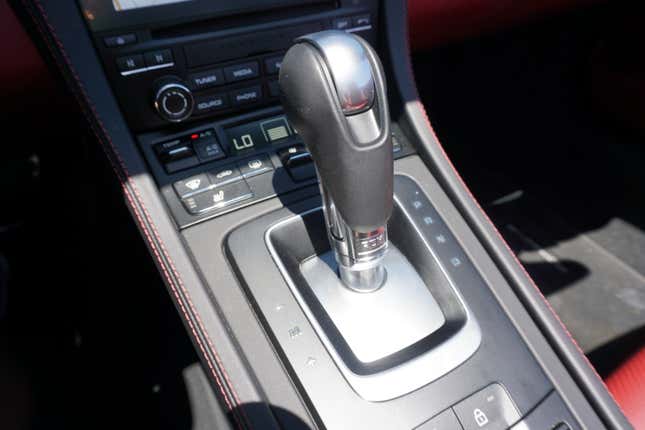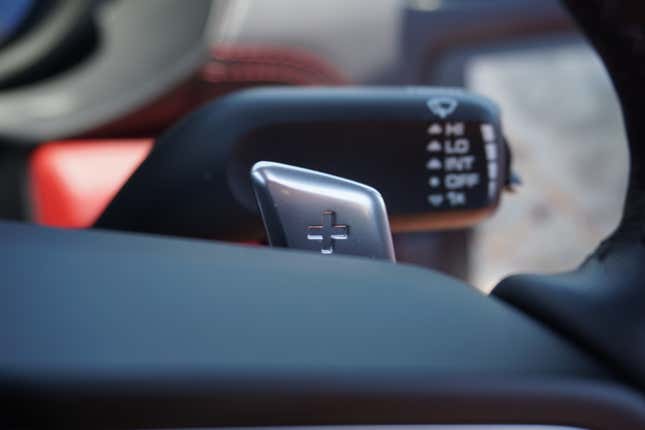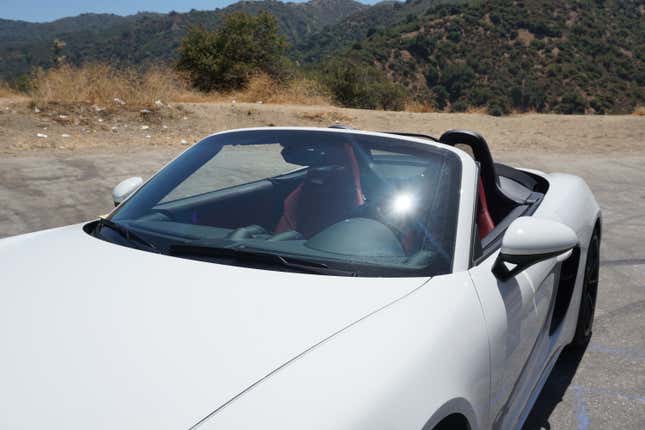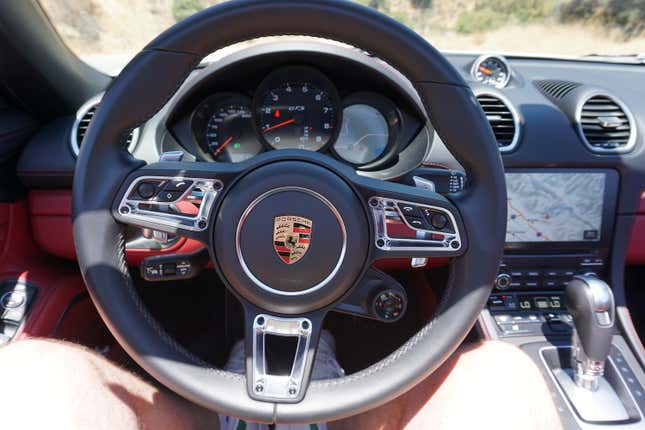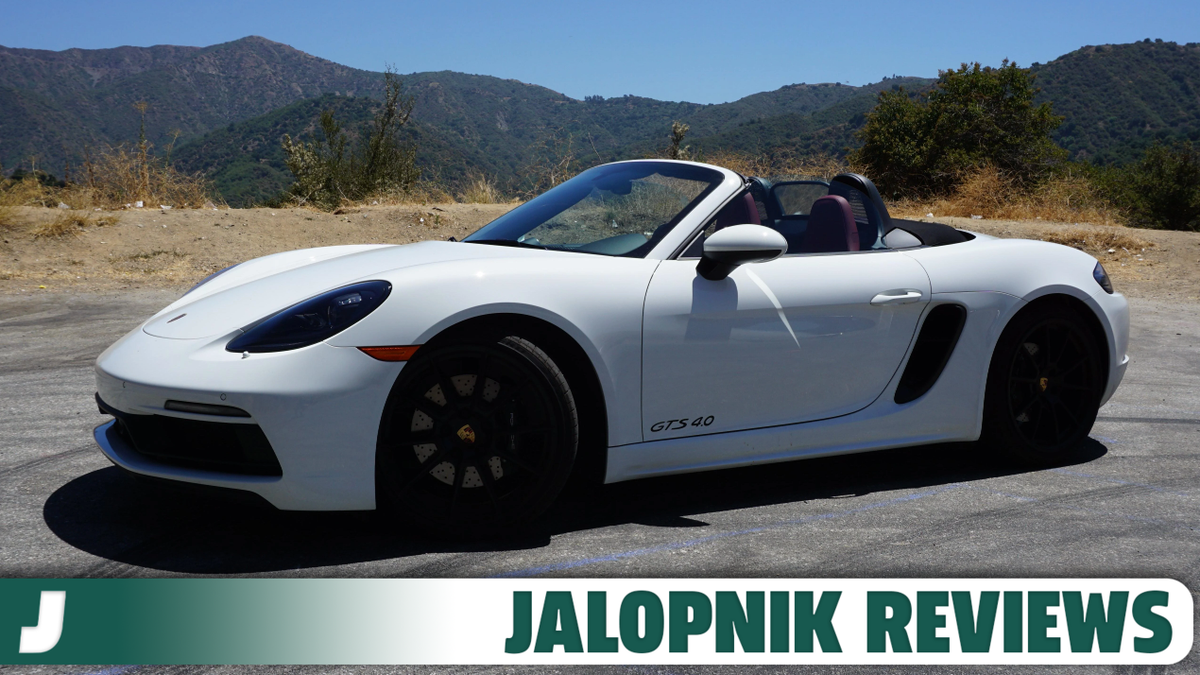When I first got into Porsche’s smallest offering, the 718 Boxster GTS 4.0, I was immediately taken aback by how old it felt. A seven-inch infotainment, dozens of buttons, mostly-analog gauges and wired-only Apple CarPlay transport you back to a time that existed before COVID and the Biden Administration. Put simply, the car feels ancient on the inside, and years behind the other Porsches I have driven. I was a bit disappointed, but after about 5 minutes behind the small-diameter steering wheels, all of those issues fell by the wayside.
You see, the 718 Boxster GTS 4.0 isn’t about the interior amenities and technology. Not at all. It’s really all about how it drives and the 4.0-liter naturally aspirated flat-six motor positioned inches behind your head. They say time heals all wounds, but in actuality, that’s what this engine does.
Full Disclosure: Porsche lent me this 718 Boxster GTS 4.0 with a full tank of gas to do with as I pleased for a long weekend in the Los Angeles area.
I’ve driven just about every Porsche the company makes right now, and for the most part they’re full of cutting-edge technology, smaller turbocharged engines and even electric power, and that is where the 718 Boxster – especially the GTS 4.0 – stands alone. Honestly, this motor is a big departure from what Porsche had been doing over the past half-decade or so – especially in the 718 lineup. When they first debuted, Porsche dropped the naturally aspirated flat-sixes of the previous generation for turbocharged 2.0- and 2.5-liter flat-fours – even in the GTS.
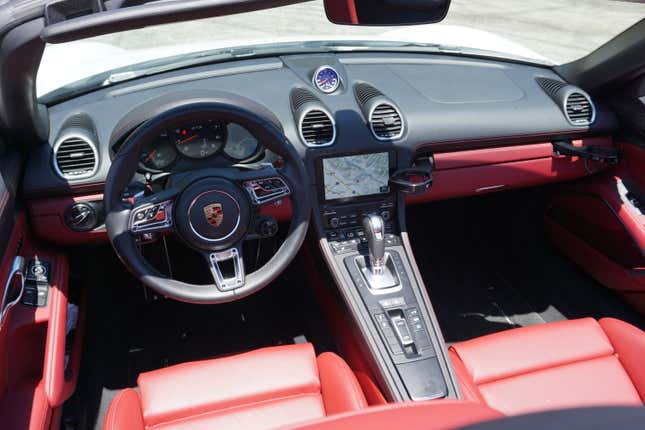
Well, after a little while enough people complained and Porsche dropped the massive 4.0-liter H6 you see here that puts out 393 horsepower and 309 lb-ft of torque. Sure, it’s not the same motor you get in GT3 cars, but it’s still damn good with its 7,800-RPM redline and 182 mph top speed. Of course, the strong performance is all well and good, but the real reason you buy a GTS 4.0 is to listen to the motor’s amazing sound. It’s a sound that makes up for the fast this car still has a CD player and the 4.3-inch gauge cluster LCD screen is pixilated.
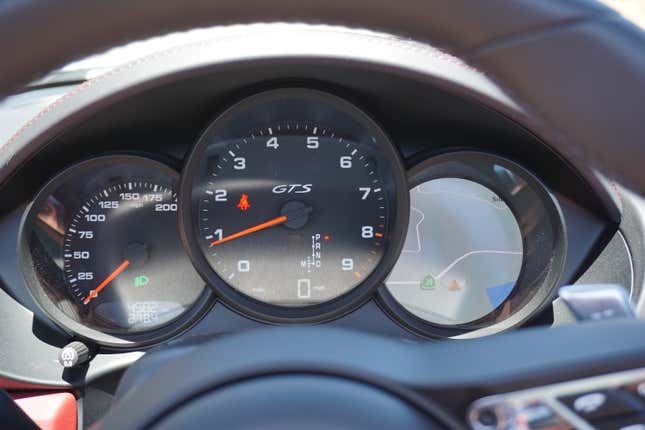
Even beyond the engine though, the way this car takes a corner is pretty much second to none. I’m sure you’ve heard in the past about how nothing handles like a Porsche, and you feel so connected, and you get the “fizz”, and yada yada yada. Well, I’m here to tell you it isn’t hyperbole. I’ve driven a lot of cars during my tenure at Jalopnik, and I have yet to drive one that is this much fun in the corners. The steering is perfectly weighted for both canyon carving and driving around town. It corners incredibly flat, and it has a ton of grip. However, the second you disable some of the electronic nannies you can feel the back want to come out to play. Not too much though – just the right amount. It corners so well you won’t give a shit about the five blank buttons directly to your right or the fact there’s nowhere to really put your phone.
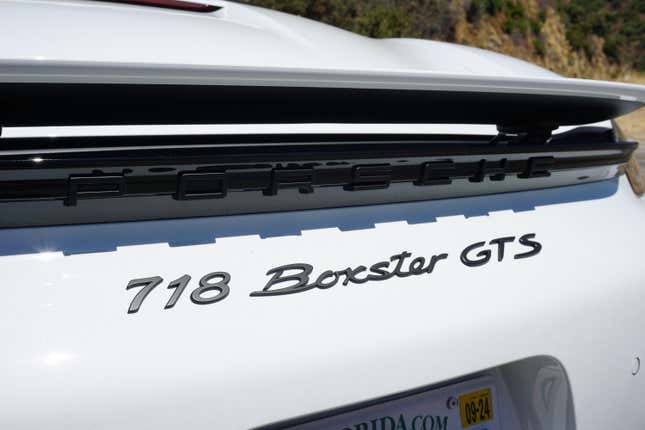
If I have just one problem with the drivetrain, it’s the gearing. My tester was fitted with Porsche’s iconic PDK dual-clutch gearbox. Its operation was silky smooth, blasting off shifts up and down the seven speeds with a very satisfying ease. The aluminum wheel-mounted paddles were also a joy to use, and if you leave it in automatic mode, it somehow knows the right gear to be in at every moment. This is all to say the gearbox’s operation is fantastic. The gearing inside though… not great. It’s SUPER LONG, and I understand why Porsche did this from a fuel economy standpoint (I averaged about 30 mph on the highway – not bad), but second gear takes you all the way to 75 and third puts you into the triple digits. I normally wouldn’t care that much, but when you want to hear that 4.0-liter flat-six near redline, you’ve got to be carrying some super big speed to do it. Luckily, for everyday driving, the 309 lb-ft of torque the motor produces is more than enough to get going – even at low RMPs. Still, the transmission’s action is so perfect you won’t really care about that or the fact its PRND gear shifter takes up valuable room on the center console.
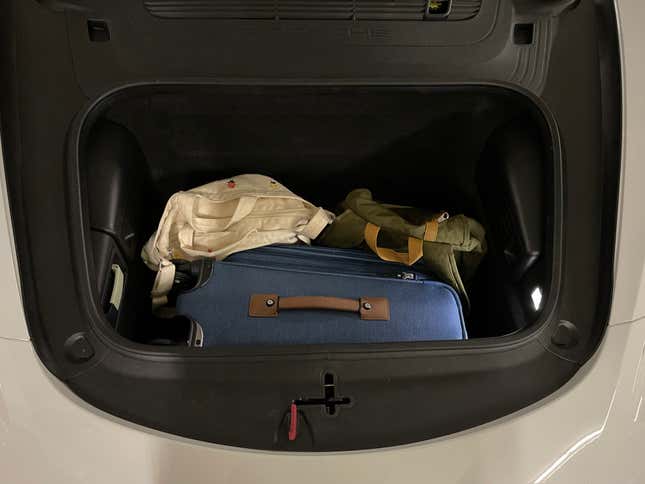
Aside from how the 718 drives, the other big thing that really sticks out to me is how well it’s packaged for such a small car. It has two trunks for Christ’s sake. It has 4.4 cubic feet of luggage space behind the mid-mounted motor (I don’t know where the engine is in this car, it makes no sense that there’s this much room) and an additional 5.2 cubic feet of space in the frunk. That amount of room proved to be way more than enough for two carry-on suitcases, two backpacks and some other odds and ends. It was really impressive, and I truly don’t know how Porsche engineers were able to pull this off. You can really use this thing as your daily if you are so inclined. The trunk space is so fantastic that you will not care that your drinks barely stay in place using the 718’s pop-out cupholders.
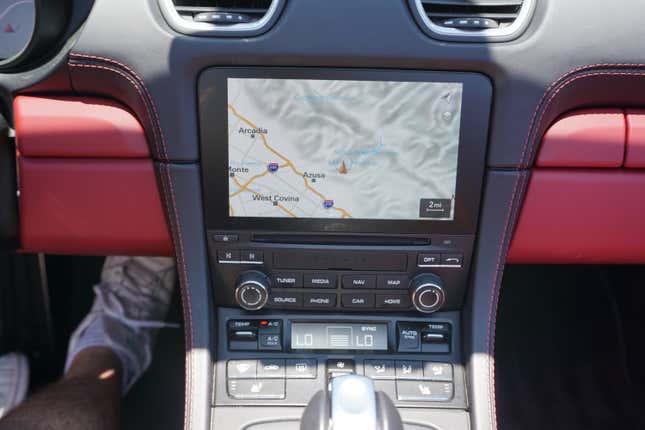
The Porsche 718 Boxster GTS 4.0 is a proof of concept for the idea that driving can still matter in modern cars. In a lot of ways, the 718 Boxster is the last of its kind – the last of the truly analog sports cars where driving matters above all else. Soon, it’s going to be replaced with an electric sports car, and I’m sure that’ll be great, but it’s going to lose a ton of the charm of the car it replaces. Even though a lot of the 718 Boxster can trace its roots back to a car that came out back in 2012, it doesn’t matter. This car is for people who love driving above all else, and that’s something that is getting exceedingly rare in this day and age.
